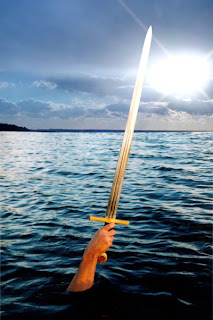Issue 49: December/January 2007
I was out walking the cliffs with my family the other day.
It was one of those sunny, yet cold and blustery, afternoons where walking is such a pleasure especially the more if there’s a pint of real ale at the end of it.
Anyway, it was a busy afternoon for walking and the cliffs were full of Sunday walkers, many I suspected taking a stroll after a good roast. The fierce Atlantic breakers set the whole sea in motion with an exhilarating swell and the crashing of the waves on the rocks far below added a fresh excitement to the occasion.
It’s a very British thing to greet everyone who you pass when out walking.
Strangers pass pleasantries on the cliff tops in way that would never happen in a town. If you walked down Camden High Street in London on a Sunday afternoon wishing everyone a ‘good day’, I wonder what sort of trouble you would end up in.
Now, my walking companions always say ‘Afternoon’ or ‘Good Day’ as a formal walking greeting; terms that I gladly avoid. Of course it is the afternoon, I don’t need to remind people and just because I say ‘good day’ it might not mean the person coming the other way has the same feeling about the day so far.
Someone once said to me ‘like Russia isn’t it?’ I looked around Rinsey Head where I was walking at the time and thought ‘it might be cold but this is Cornwall and it looks nothing like Russia, what on earth are you talking about?’
I always say ‘yew’ (when you pronounce it, it rhymes with shrew). It’s a Cornish expression and I’m not sure if it translates into English. What I take ‘yew’ to mean is ‘how is it going? I’m not having a bad day, how about you?’.















.jpg)